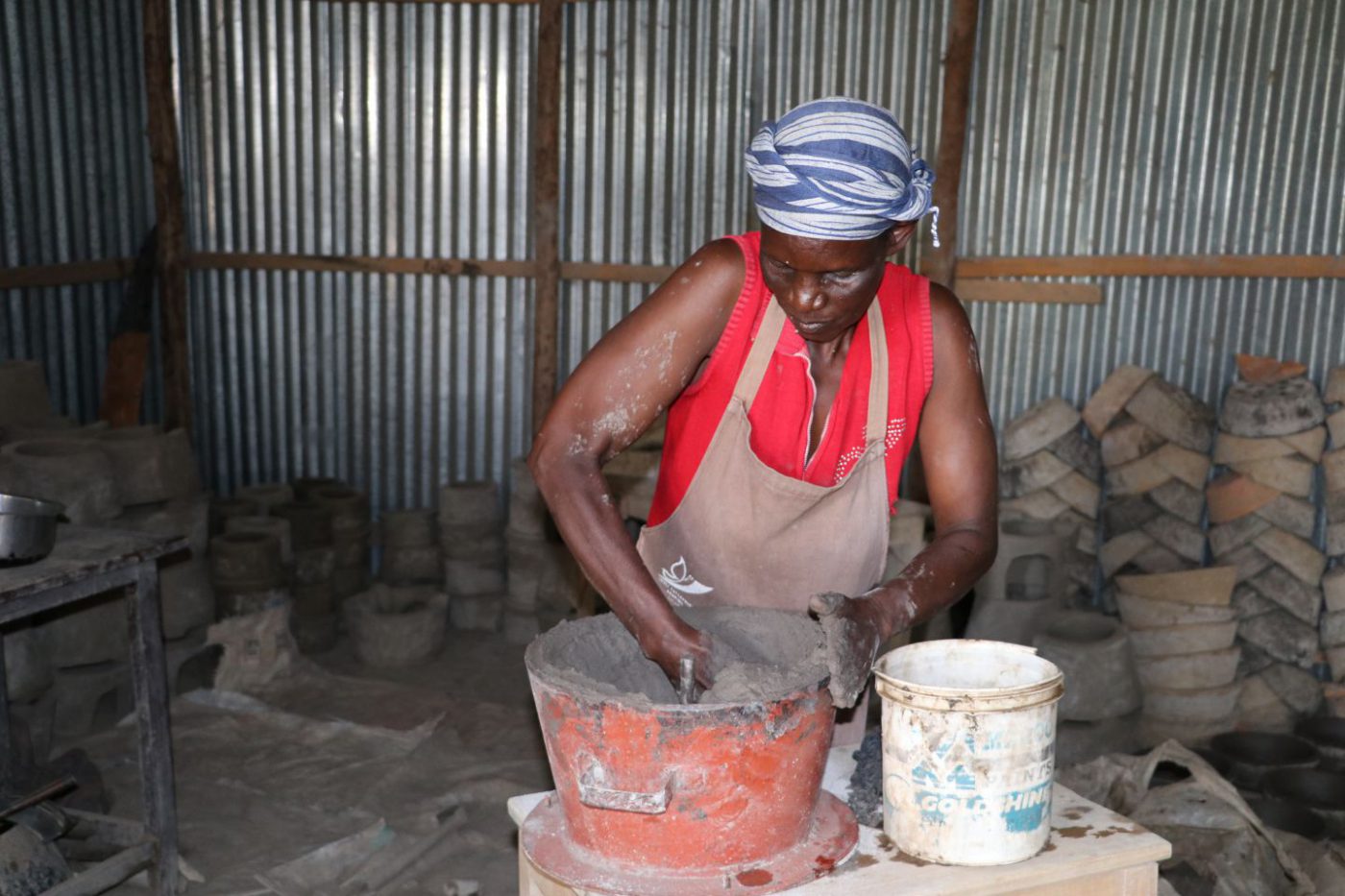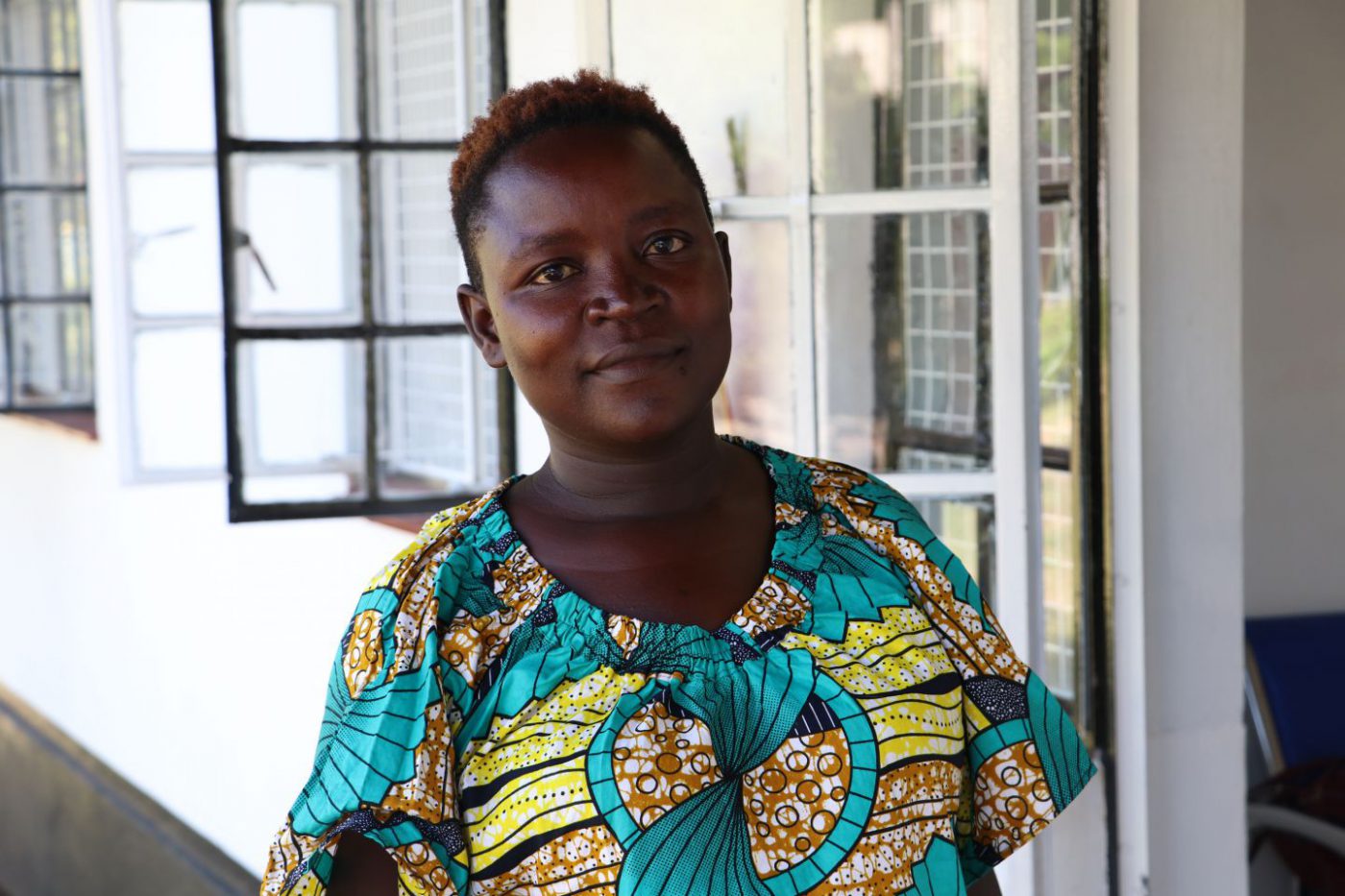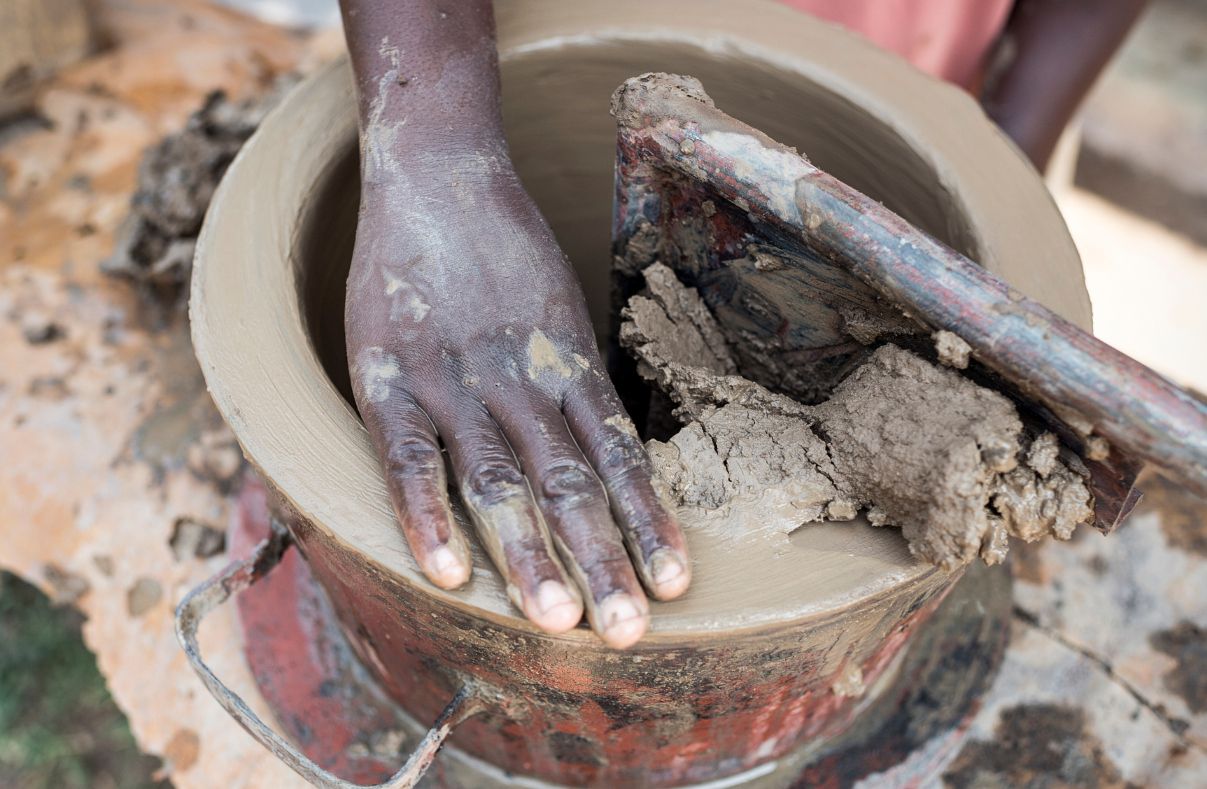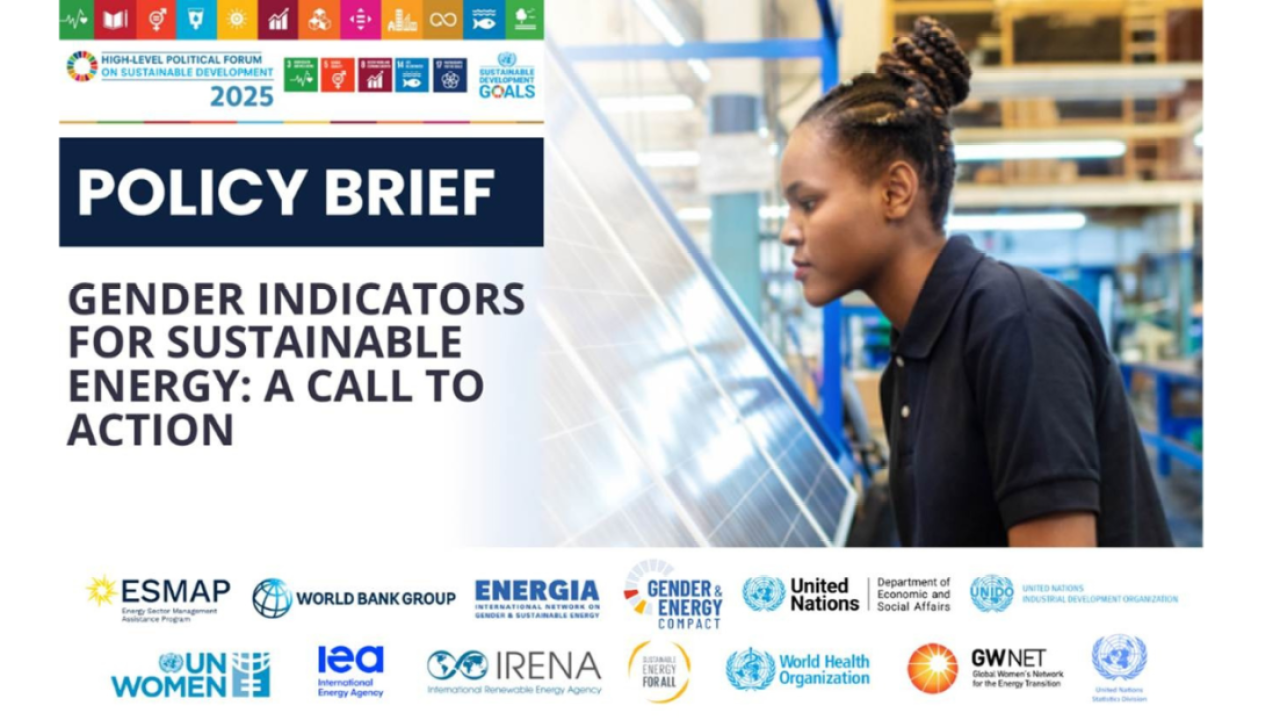Herma Okonjo and Asenath Onyango are energy entrepreneurs living in Kisumu County, Kenya. Herma runs an improved cookstoves business. She produces liners for Kenya Ceramic Jiko, Uhai and Upesi cookstoves and assembles them. Asenath owns an energy business in improved cook stoves, briquettes and solar products. Both women have come a long way since starting their business and perform outstanding. This has earned them in invitation to share their experience as women entrepreneurs during the closing plenary of the Clean Cooking Forum 2019, on November, 6.
Herma Okonjo and Asenath Onyango are energy entrepreneurs living in Kisumu’s Nyamasaria town, in Kenya. In Kisumu, many families lack access to clean cooking technologies and energy. In the region, as in many other places in Kenya, women are usually responsible for the majority of unpaid domestic and care work. To cook for their families, they rely on the use of dirty and dangerous fuels and are exposed to high levels of air pollution and harmful pollutants. Looking at these effects on themselves, families and communities, both Herma and Asenath attended trainings on clean cooking technologies.
 In 2006 Herma enthusiastically accepted an invitation of the district’s agricultural department to join a group of women who offered trainings in cook stoves production. This is where her journey began and thanks to her motivation and outstanding results within the community, Herma was selected by Practical Action and ENERGIA to take part in the Women in Energy Enterprises in Kenya (WEEK) project in 2015. The project provided training on several aspects of running a business, such as business management, customer relations and marketing skills. The acquired knowledge and skills helped Herma to expand her market to Nairobi and Mombasa Counties. She also successfully obtained a loan of Ksh. 50,000 (approximately USD 780) by Practical Action, which helped her to grow her business even more.
In 2006 Herma enthusiastically accepted an invitation of the district’s agricultural department to join a group of women who offered trainings in cook stoves production. This is where her journey began and thanks to her motivation and outstanding results within the community, Herma was selected by Practical Action and ENERGIA to take part in the Women in Energy Enterprises in Kenya (WEEK) project in 2015. The project provided training on several aspects of running a business, such as business management, customer relations and marketing skills. The acquired knowledge and skills helped Herma to expand her market to Nairobi and Mombasa Counties. She also successfully obtained a loan of Ksh. 50,000 (approximately USD 780) by Practical Action, which helped her to grow her business even more.
Herma’s success did not come without any challenge. When she started her business, the market was not ready for her products. The wholesalers who did buy her products paid her after having sold all the stoves. This means that she not only had to pre-finance her products, but also wait a long time after her sales to receive their payment. To overcome this, Herma has come up with a regulatory strategy whereby she supplies a limited number of stock to wholesale buyers. Beyond initial barriers, her business experience gave her the opportunity to give back to her community by training groups of women on cook stoves production and assembling. Nowadays, her stock levels have increased and she proudly confirms having readily available products upon request and selling up to 2,000 ICS liners and 18 cook stoves monthly. She has also acquired the Kenya Bureau of Standards standardization certificate for her Uhai stoves. “Since I have all the relevant skills and knowledge of making improved cook stoves, I would like to start my own improved cook stoves production house and give back to the society” says Herma. “To achieve this, I would like to be enabled to access loans from financial institutions and purchase production machines. I would also like to receive more business management skills so that I can be able to keep track of each and every activity in this energy business” she adds.
As Herma, Asenath started her energy business in improved cook stoves, briquettes and solar products by joining a training course sponsored by the Department of Environment of Kisumu County. The course focused on providing youth with skills to conserve our planet’s resources, including briquette making. The training motivated Asenath and a group of friends to build a clean cooking youth empowerment group, named Inuka Success Youth Group. The group aimed at training unemployed youth on briquette making, offering them an opportunity to be engaged in the energy sector. Their ambition and commitment impressed the district’s Environmental Department, which bought them a briquette making machine. This spurred the group’s growth and activities further and soon they started selling portable solar products and improved cookstoves next to the briquettes. In 2017 the group split up. This strongly affected Asenath’s business growth as she now saw herself forced to produce her briquettes manually. But her luck turned when a little down the road a friend introduced her to Practical Action’s Women in Energy Enterprises in Kenya (WEEK) project, supported by ENERGIA. Asenath participated in training sessions on solar installation, technology, business skills and leadership. She diversified her business, while still producing the briquettes manually. Thanks to her ambition, Asenath was among the few women entrepreneurs who were selected to attend the Micro-grid entrepreneurship training organized by the Africa Women Energy Entrepreneurship Framework (AWEEF) at its Micro Grid Academy in Nairobi in 2018.
 Nowadays, Asenath sells an average of 32 solar products, 12 cook stoves and 52 kilograms of briquettes on a monthly basis. Her business is growing, despite existing gender norms. “People in my hometown still believe that hard core jobs as installing solar panels are for men, and women should not engage in these activities. These stereotypes affect my business and sales” admits Asenath. Looking at the future, Aseneth would like to have a permanent shop to stock her energy products. Now, she is usually forced to carry them to the market and back home, which is tiresome and hectic. She also aims at expanding her business further by venturing into improved cook stoves production and installation. “I would like to receive more training on production and marketing strategies to expand the market beyond Kisumu and Homabay counties” she says.
Nowadays, Asenath sells an average of 32 solar products, 12 cook stoves and 52 kilograms of briquettes on a monthly basis. Her business is growing, despite existing gender norms. “People in my hometown still believe that hard core jobs as installing solar panels are for men, and women should not engage in these activities. These stereotypes affect my business and sales” admits Asenath. Looking at the future, Aseneth would like to have a permanent shop to stock her energy products. Now, she is usually forced to carry them to the market and back home, which is tiresome and hectic. She also aims at expanding her business further by venturing into improved cook stoves production and installation. “I would like to receive more training on production and marketing strategies to expand the market beyond Kisumu and Homabay counties” she says.
Both Herma and Asenath believe that women and youth play a crucial role in transforming the energy sector towards SDG7, which call on affordable and clean energy for all. “We believe that women and youth are a nation’s driving force and empowerment will contribute largely towards making them agents of change in the energy sector” agree Herma and Asenath.
Do not miss their intervention at the closing plenary of the Clean Cooking Forum 2019 on Nov, 6. Follow the hashtag #CCF2019 and our Twitter account for updates.







